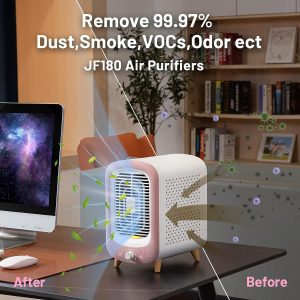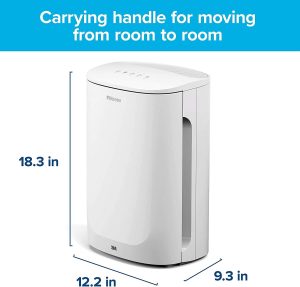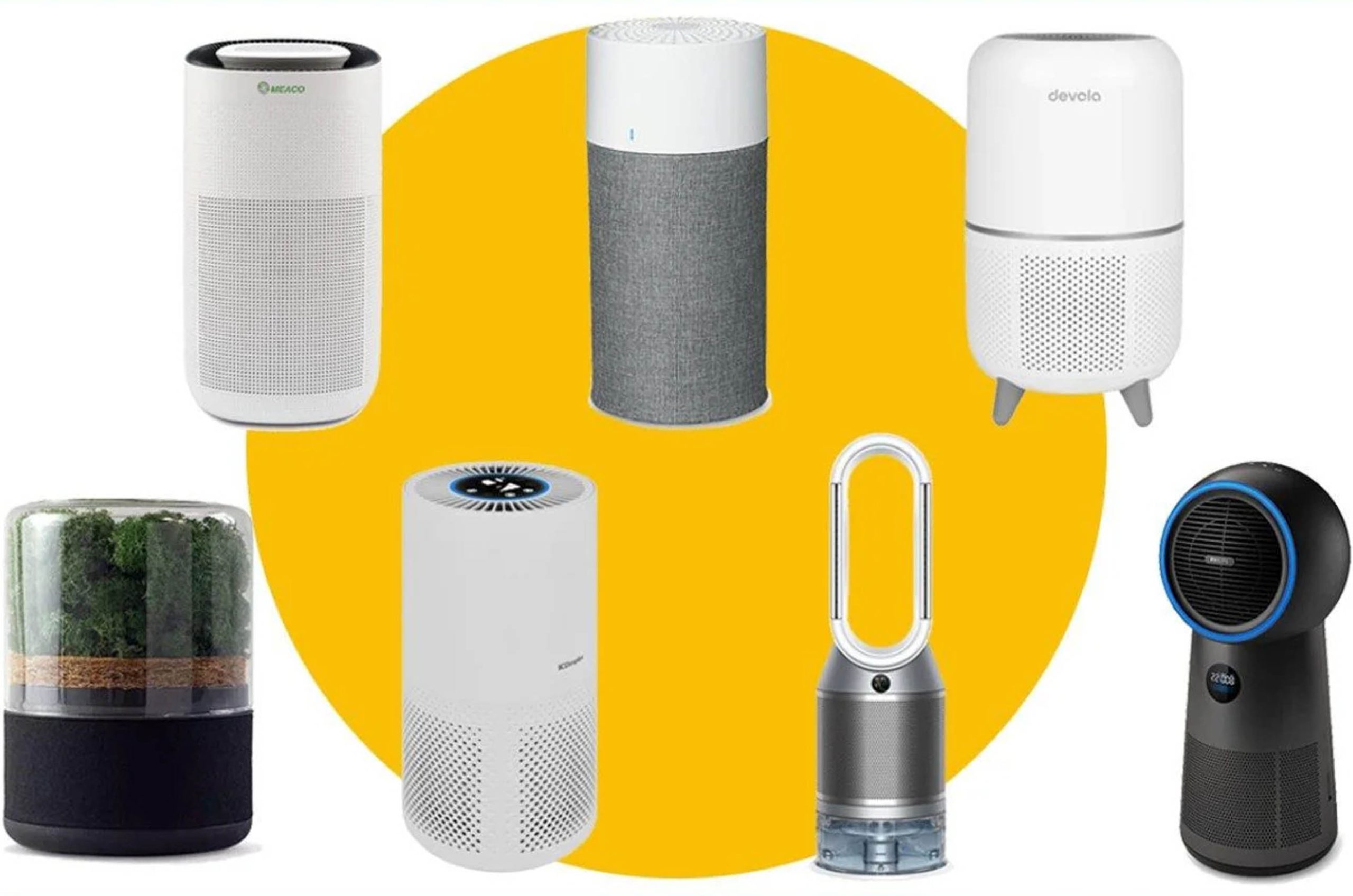We shall examine, “are there any government certifications or standards for home air purifiers” in this post. Given the growing concern over air pollution, we all want to breathe clean, safe air in our homes. By the end of this article, you will know whether you need to hunt for an air purifier that is certified or whether there are any particular standards you need to take into account.
It’s crucial to be informed of any certifications or standards that can guarantee the effectiveness and efficiency of home air purifiers. While there may be certain certifications or rules in place in some nations, this isn’t always the case globally. Government organizations like the Environmental Protection Agency (EPA) may offer advice or instructions for choosing air purifiers in some nations, although they might not formally accredit any particular models. So, regardless of whether there is a government certification, it’s crucial to perform your homework and hunt for reliable products that adhere to particular industry standards.
Introduction
Definition of home air purifiers
Devices called Home air purifiers are made to clean and filter the air in enclosed rooms. They frequently have filters installed to get rid of pollutants including smoking, pollen, pet dander, dust, and other airborne particles. By lowering the concentration of pollutants, these devices work to enhance air quality and encourage a healthier living environment.
Importance of air quality in homes
For a healthy living environment to be maintained, good air quality is essential. Numerous health problems, such as asthma, allergies, and respiratory disorders, can be brought on by poor indoor air quality. In enclosed places, dust, allergies, and other pollutants can build up, creating discomfort and possible health problems. By removing these toxins, home air purifiers contribute significantly to raising the standard of the air you and your family breathe.
Government Certifications and Standards
Role of government in regulating home air purifiers
To ensure customer safety and product efficacy, governments play a critical role in regulating the production and marketing of home air purifiers. Governments strive to inform and reassure consumers about the caliber and dependability of these technologies by adopting standards and certifications.
Certification programs for air purifiers
To confirm the effectiveness and safety of home air purifiers, some nations have set up certification programs. These programs use stringent testing techniques carried out by independent testing labs to evaluate the performance of air purifier devices. Following certification, products are given a particular label or mark that aids consumers in making wise purchasing decisions.
Key government organizations involved
Various government organizations may be in charge of establishing and implementing regulations for home air purifiers in different nations. The Environmental Protection Agency (EPA) is one such organization that regulates air quality in the United States. Regarding air purifiers and their certifications, it offers rules and recommendations. Another organization that helps to guarantee the security of these gadgets is the Consumer Product Safety Commission (CPSC).
Testing methods and criteria for certification
Home air purifier certification programs frequently involve testing procedures and requirements that air purifiers must satisfy. The effectiveness of the air purifier at removing different pollutants, such as smoke, pollen, or dust, may be evaluated using one of these techniques. During the certification procedure, the device’s durability, noise level, and energy efficiency may also be assessed.
Energy Efficiency Standards
Importance of energy efficiency in air purifiers
An important factor to take into account when selecting a home air purifier is energy economy. Lower electricity costs and a less environmental effect can result from increased energy efficiency. Energy-efficient air purifiers are a sustainable option for your house because they use less energy while maintaining the same level of air filtration.
Government standards for energy efficiency
Air purifiers now have to meet energy efficiency requirements set forth by a number of nations. These specifications specify the maximum permitted energy usage for a particular air purifier model. If a manufacturer wants to be certified for energy efficiency, they must go by these requirements.
Labeling and rating systems for energy consumption
Governments frequently use labelling and rating systems for air purifier energy usage to assist consumers in making educated decisions. Consumers may compare various models and choose the one that best suits their needs and tastes thanks to the information on energy efficiency provided by these labels and ratings.
Air Quality Standards
Established air quality guidelines
Governments have developed standards for acceptable pollution levels in both indoor and outdoor spaces. These recommendations, which aim to preserve the public’s health, are supported by scientific research. Utilizing air purifiers can help you adhere to these air quality standards by lowering the amount of pollutants present indoors.
Government regulations on air pollutants
Governments may set rules on air pollution to provide cleaner, healthier indoor air. For different pollutants, such as particulate matter, volatile organic compounds (VOCs), or certain gases, these rules may set concentration limitations. To create a secure and healthy living environment, air purifiers must adhere to certain rules.
Minimum requirements for air purifiers
Governments may occasionally set minimum standards for air purifiers, defining the degree of air filtration they must provide. These specifications guarantee that air purifiers adequately improve consumer air quality and minimize pollutant concentrations.

Safety Standards
Government regulations on product safety
Governments have put in place measures to guarantee the security of consumer goods, such as home air purifiers. These rules might encompass things like production with safe materials, electrical safety, and fire safety. In order to meet safety requirements and reduce consumer risks, air purifiers must adhere to certain criteria.
Testing requirements for electrical components
The electrical components of home air purifiers are frequently subject to testing criteria set forth in government safety standards. These testing make sure the gadgets function securely and without causing any electrical risks. Manufacturers can guarantee that their products fulfil the necessary safety standards by following these guidelines.
Materials and emissions standards
The usage of safe materials and emissions standards may be regulated as part of government safety guidelines for residential air purifiers. By limiting the discharge of dangerous compounds into the air, these restrictions hope to prevent further health hazards from being posed by the devices. Air purifiers are safe to use and do not introduce any new pollutants into the indoor environment if they adhere to certain criteria, which ensure their compliance.
Health Standards
Impact of air purifiers on respiratory health
Particularly for people with allergies or other respiratory issues, air purifiers can improve respiratory health. Air purifiers contribute to the creation of an environment that is easier to breathe in by removing allergies, dust, and other pollutants from the air. To secure the best respiratory advantages, it is crucial to select air purifiers that adhere to a set of health criteria.
Government guidelines for preventing health risks
To reduce health concerns, governments may issue directives and suggestions about the usage of air purifiers. To maximize the efficiency of the devices, these recommendations might cover details on optimal upkeep, filter change, and usage. By following these recommendations, you may make sure that air purifiers aid to promote better respiratory health.
Certifications for air purifiers suitable for sensitive person
Some certifications concentrate on air purifiers made especially for those with allergies or other sensitivities. These certifications guarantee that the air cleaners adhere to strict guidelines and offer improved filtering performance for allergies or other particular contaminants. Selecting certified air purifiers appropriate for those with sensitive skin might assist to lessen allergic reactions and enhance general health.
Consumer Rights and Information
Government efforts to inform consumers
Governments are essential in educating the public about the value of purchasing certified products and air purifiers. They offer details on the advantages of utilizing air purifiers, suggestions for choosing the best one, and resources for locating models that have been approved. Governments give people the power to make knowledgeable decisions about the air quality in their homes by fostering consumer awareness.
Availability of product information
Manufacturers of air purifiers are frequently required by law to offer thorough product information. Technical specs, performance data, energy efficiency rankings, and other pertinent information are all included in this information. The ability to compare various models and make educated decisions based on their needs and preferences is made possible for consumers by having access to this information.
Consumer rights for faulty or misleading products
Customers have a right to get products that are trustworthy and safe, including air purifiers. Consumers can seek redress through consumer protection laws and regulations if a certified air purifier doesn’t live up to its stated standards or has safety risks. These regulations seek to defend consumers’ rights by shielding them from subpar or deceptive goods.
International Standards and Harmonization
Global organizations working on air purifier standards
The International Electrotechnical Commission (IEC) and the International Organization for Standardization (ISO), among other international organizations, create and advance worldwide standards for air purifiers. These organizations assemble specialists from several nations to create common standards, assuring uniformity in quality and safety across borders.
Efforts to align international certifications
In an effort to promote trade and guarantee uniformity of product, air purifier worldwide certifications are being coordinated. The global market for air purifiers is made simpler by standardization of certification procedures and regulations, which enables producers to satisfy requirements for many countries with a single certification. This trend encourages a more effective and open market, which benefits both manufacturers and customers.
Benefits of international harmonization
The advantages of international air purifier standardization are numerous. It eliminates redundant certification and testing procedures, saving manufacturers money and time. A larger selection of certified air purifiers benefits customers as well because they can shop with confidence knowing that their purchase will adhere to high standards of quality and safety. In the end, harmonization encourages fair competition and international trade while upholding high quality standards.
Industry Compliance and Enforcement
Government oversight of the industry
Governments regulate the air purifier market to guarantee adherence to rules and regulations. To keep an eye on the effectiveness and safety of air purifiers on the market, they may carry out routine inspections, audits, and market surveillance activities. This regulation safeguards consumers against inferior or dangerous items and supports the industry’s integrity.
Enforcement of standards and penalties
Governments may impose sanctions on manufacturers or distributors that fail to comply with air purifier standards and laws. Fines, product recalls, or even legal action are examples of these sanctions. The importance of adhering to established standards is reinforced by the deterrent effect that standards enforcement and sanctions have on dishonest behavior.
Industry self-regulation
The air purifier industry is subject to both governmental regulation and self-regulation. To guarantee adherence to standards, industry associations and organizations create codes of conduct and best practices. To show their dedication to quality and safety, manufacturers can voluntarily submit their goods for testing and certification by a third party. The consumer trust and confidence are boosted by this industry self-regulation.

Conclusion of Are There Any Government Certifications Or Standards For Home Air Purifiers
The significance of government certifications and standards
Home air purifier certifications and standards set by the government are essential for guaranteeing customer safety, product efficacy, and environmental sustainability. Governments ensure consumers, encourage educated purchase decisions, and develop a healthier living environment by implementing regulations and certification programs.
Importance of choosing certified air purifiers
For maximum air purifiers (air purification) benefits and minimal health hazards, using certified air purifiers is crucial. The performance, safety, and energy economy of certified air purifiers have all been rigorously tested. When you use certified goods, you can be sure that they will offer high-quality air purification, ensuring a hygienic and healthy home environment.
Benefits for consumer health and safety
Home air purifier certifications and regulations set by the government eventually promote consumer health and safety. Effective air filtration lowers exposure to dangerous contaminants, eases respiratory problems, and makes a home healthier. Manufacturers supply consumers with trustworthy and efficient air purifiers by abiding by these requirements, assuring a favorable effect on their wellbeing.

